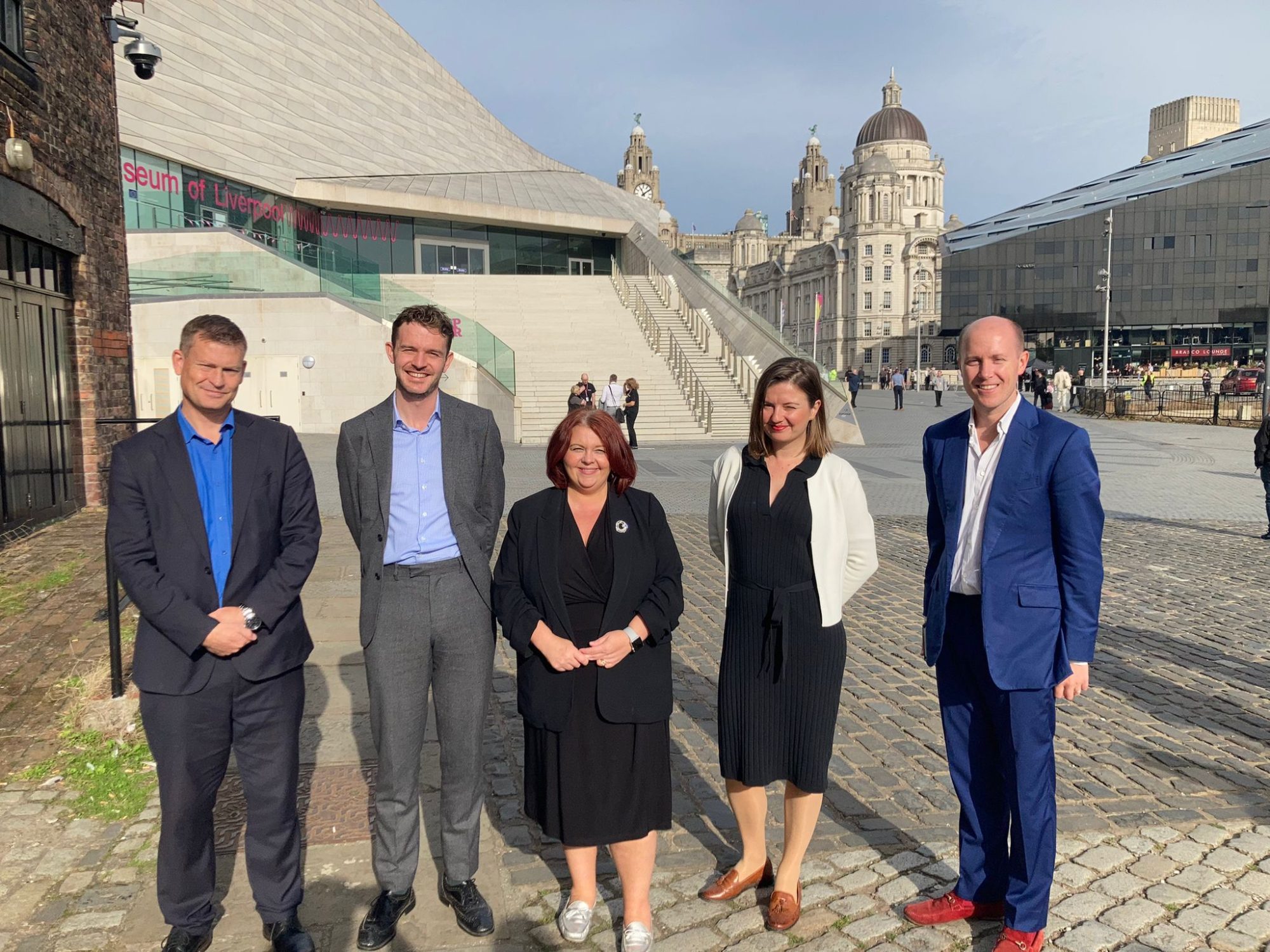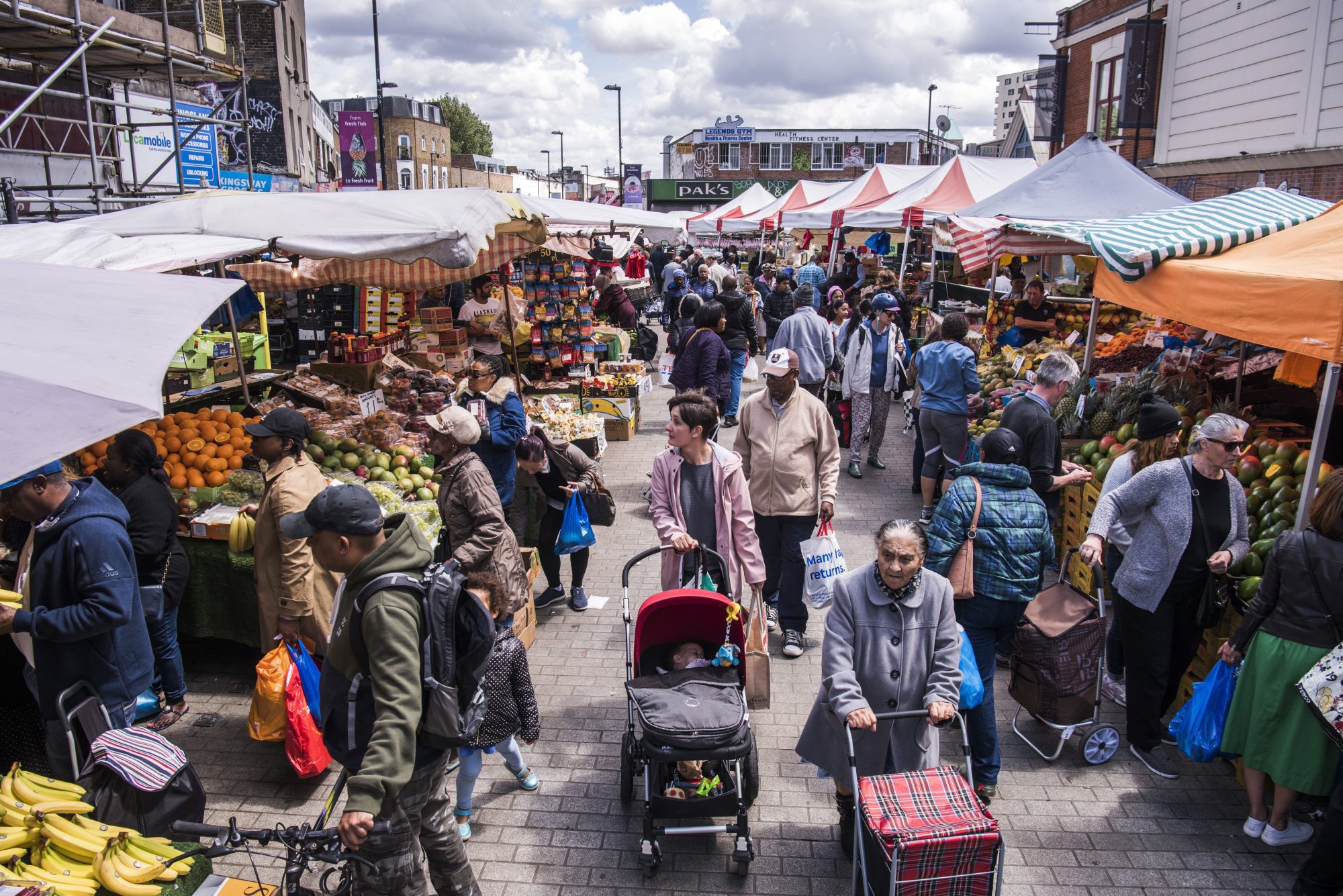
Jessica Craig
Policy Officer
Perhaps it was a manifestation of Labour’s mood after the week’s by-election victory, perhaps just the unpredictability of the British weather, but as we arrived in Liverpool for the Labour Party Conference, the rain that had followed us throughout our time in Manchester had been replaced by unseasonably sunny skies.
Inside, the bustling conference also struck something of a contrast to the previous week’s events. While certain senior Conservatives used their conference to set out their stall for leadership and competed to shape the vision of the party’s future, the message at the Labour party conference was one far more focused and disciplined. Labour is looking ahead to the general election and crafting its practical first steps in government. But far from being overconfident of its electoral prospects, the party is also focused on what needs to be done before then to secure the public’s confidence and an electoral victory.
After the recent shadow cabinet reshuffle, we were keen to hear how Labour plans to reimagine levelling up for the next Parliament, to ensure that while the party is thinking of the bigger picture, it doesn’t lose sight of what matters to people’s everyday lives. It became clear that the party intends not only to reboot, but also rebrand the agenda, with its own focus on regional rebalancing. But beyond the language, the basic principles of tackling inequalities and sharing power across England’s regions through devolution remain the same, and we should focus our attention on how Labour intends to deliver this vision in practice. We were pleased to hear new Shadow Minister for Devolution and the English Regions, Paula Barker MP, reaffirm the party’s commitment to introducing a Community Right to Buy – a key legislative change that will give communities more power to take control of the places and spaces that matter to them.
Signs that the party has faith in the power of communities – and of community business – were all around. We saw social enterprises take on a key role in the conference supply chain, with 40 per cent of conference suppliers being social enterprises, including the Anfield-based community business Homebaked Bakery, which fed conference-goers with its locally made pies.
We also burst the Westminster bubble with brilliant community leaders on our panels. Annoushka Deighton shared her experience of bringing Stretford Public Hall into community ownership, and its journey to become a vibrant community hub. At a time when numerous local authorities are facing extreme financial pressure, her story offers a timely vision of what can be achieved by and for communities if assets are brought into community hands, rather than being sold off to the highest bidder. Sacha Bedding of the Wharton Trust in Hartlepool made the case for a Community Power Act, arguing that Labour’s Take Back Control Bill has to be about giving people more of a stake in what happens in the places they live, not just about creating more mayoral combined authorities.
Sir Keir Starmer also found his voice in his address to the conference, sharing his faith in the potential of our communities and the working people of the UK. The question now is how Labour would create the conditions for them to thrive. Sir Keir recognised that the public wants Labour to find that ‘elusive path to an economy that serves their community’. As we argue in our manifesto, this can be found in a new, more local political economy which disperses power to communities through locally rooted and accountable organisations that people can trust. Labour can get on this elusive path if it backs community business.
Over the last few weeks, we’ve travelled to the Liberal Democrat, Conservative and Labour party conferences to make the case for community business. We’ve argued that, whoever forms the next government, community businesses will be a willing partner in tackling the challenges before our country, from the green transition to the cost of living and revitalising our high streets. And, alongside some amazing community business leaders, we’ve demonstrated how the next government can help communities to thrive by providing community businesses with the powers, resources and backing to realise their potential.



